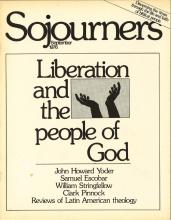Weston Priory is nestled in the midst of the sturdy Green Mountains of Vermont. It is a small community of Benedictine monks whose experience of living and growing together has become a sign and a vision of Christian community for many. Founded in 1953 by Brother Leo, then Abbot of Dormition Abbey in Jerusalem, the Priory became locally autonomous in 1968. Because of this autonomy, the brothers, now numbering 15, have been able to evolve their own natural community life with a certain spirit of flexibility and creativity. At the same time their life together is rooted deeply in the gospel of Jesus and the traditional Rule of St. Benedict, which has served as the basic rule for monastic life since the sixth century.
They describe themselves in this way: “We are a family of brothers seeking in faithfulness to one another to grow in Jesus’ spirit, and to become for others a sign of his unifying and redeeming presence in all persons and in our world. Our chosen way of doing this is through community, whose communion and common life draw us ever forward and give distinctively monastic witness to such Gospel values as prayer, work and hospitality.”
The brothers govern themselves by consensus among co-equals, and they ask one brother to serve the others as a prior. They support themselves through various crafts such as pottery, bookbinding, cloisonné enamel, woodworking, graphics, cider making, photography, and music. There is a love and concern for the land among them, and they express this through forestry and gardening.
As one drives up the rise of the mountain, the neat group of buildings, clustered around the original farm house and barn which is now extended into a simple chapel, comes into view. One is immediately struck by a sense of order and converse with nature. It is evident that these men have sunk their roots deeply into the strength and creativity of the natural order.
Read the Full Article

